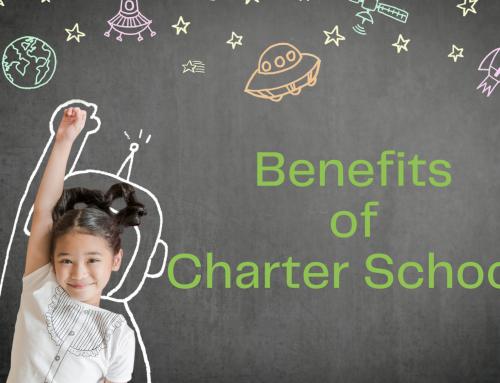In July of 2020, the California charter school legislation known as AB 1505 will go into effect. Advocates for the California charter school system were passionate in their disapproval for many of the proposed reforms in the original legislation, but the final result was a compromise that most can support. The California Charter Schools Association (CCSA), who previously opposed AB 1505, has taken a neutral position and continues to stay vigilant in order to protect parents, children, and schools’ rights.
For parents, the biggest concern is whether or not the charter schools their child attends will be shut down. The short answer is that if your child’s school is performing according to standards of the CCSA, there shouldn’t be any reason to think your child’s charter school will lose its petition. The longer answer is that many reforms have been made to the charter school system that will hopefully result in greater transparency, efficiency and success for charter schools in California and the children that attend them.
What Will the Changes to Charter Schools Be in 2020?
For years, the California Teachers’ Association (CTA) and anti-charter policymakers have fought for new regulations to raise transparency and accountability for charter schools. At the same time, charter school supporters have worried the real opposition was rooted in financial issues, and that new regulations would equal defunding. New California Governor Gavin Newsom helped negotiate between the two sides for a resolution that both were more comfortable with.
The key changes that will be affecting charter schools due to the passing of AB 1505 are:
- A 3-tiered charter renewal process that takes fiscal impact into consideration on new charter school petitions
- A moratorium on new non-classroom based schools
- Required certification for teachers by the Commission on Teacher Credentialing (CTC)
The New 3-Tiered Charter Renewal Process
The new charter school petition process will affect all charter school petitions (approval, renewal, appeals) but in different ways and according to a new 3-Tiered approach. This approach categorizes existing charter schools into low, mid-range and high performance schools according to the California Charter Schools Association (CCSA) criteria. This criteria and each schools’ “score” can be found by visiting the California School Dashboard website.
The New Charter School Approval Process
The approval process of new charter schools in California has always been a contentious topic. Opponents of the original bill were very concerned about how easy it would be to deny new charter school petitions on the basis of “fiscal impact”, which was defined very broadly. Simply stated, the new reasons a charter school could be denied are defined as:
-
- The charter school is not likely to serve the interests of the community in which it wants to operate. The charter school would undermine the current educational services in the location and/or would duplicate the educational programs and services already offered in that location.
- The current school district of said location would not be able to bear the fiscal impact of the addition of a charter school in that location.
The New Charter School Renewal Process
The renewal process of any charter school will depend on the school’s categorization by the CCSA. Renewal processes for each tier will look like:
Low-performance charter schools will be looked at with more scrutiny and offered a “second look” option that gives a shorter renewal (2 years) pending improvement and assessment.
Mid-range performance charter schools will be assessed by weighing the factors established in the California School Dashboard. This mid-range will be the category in which the majority of the charter schools fall.
High-performance charter schools will enjoy a streamlined renewal process due to their ongoing excellence. Renewals will be approved for an additional 5 to 7 years.
Additionally, charter schools designated as Dashboard Alternative School Status (DASS) will go through their renewal process locally and thus follow a different process.
The Moratorium on Non-Classroom Based Schools
At present, AB 1505 charter school legislation puts a two-year moratorium on creating any new non-classroom based (NCB) charter schools, until January 2022. This moratorium was in response to recent indictments of eleven people connected to online charter schools, resulting in two charter schools closing in San Diego and Los Angeles. Current NCB charter schools are still currently in operation. Pending resolution of the issues around NCBs, it remains to be seen what reforms or changes the future may bring. It is also likely that the 2020 COVID19 pandemic may have a significant impact on the future of NCB charter schools in California. For more information, please refer to the AB 1507 charter school legislation.
New Required Certification for Charter School Teachers
Teachers at charter schools who teach “noncore” and “non-college preparatory” course have had a degree of flexibility in the past in regard to teacher credentials. AB 1505 will require that all teachers be credentialed according to standards set by the Commission on Teacher Credentialing (CTC), which may be disruptive to charter schools because teachers will have to take steps to be in compliance by the agreed upon dates. For some teachers, these steps may be more difficult and time consuming than for other teachers, which was a concern in the original draft of AB 1505. In the revised legislation, teachers have until 2025 to obtain all the necessary certification, which should mean as smooth a transition process as possible.
A positive of the credentialing aspect of AB 1505 is that all charter schools in California will standardize adherence to CTC guidelines and processes, expected to again increase efficiency and transparency, holding all persons to the same standards. All teachers will be appropriately credentialed and subject to the same background checks and safety standards.
Looking Ahead
In its original incarnation, AB 1050 legislation would have been restricting and difficult for charter schools in California to adhere to. With the many different interests involved, it is encouraging that all sides came together to craft legislation that seems to serve in the best interest of charter schools, public schools and the community at large. Most importantly, the compromises made should serve the best interests of students receiving the best education possible while easing the concerns of charter school supporting parents.
For more detailed information about upcoming California charter school changes, check out the California Charter Schools Association’s “Beating the Odds – Protecting Fundamental Charter Values in 2019”.




